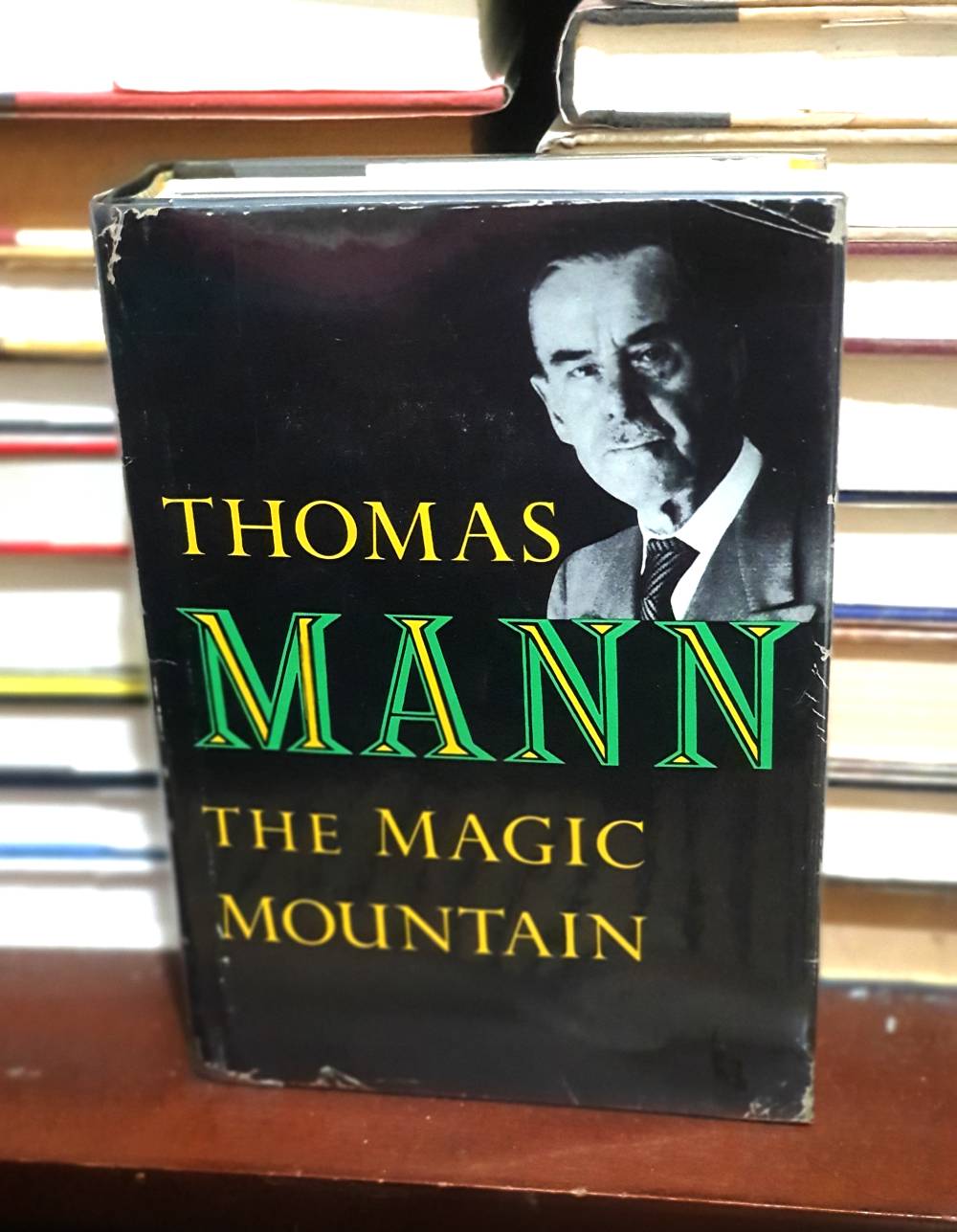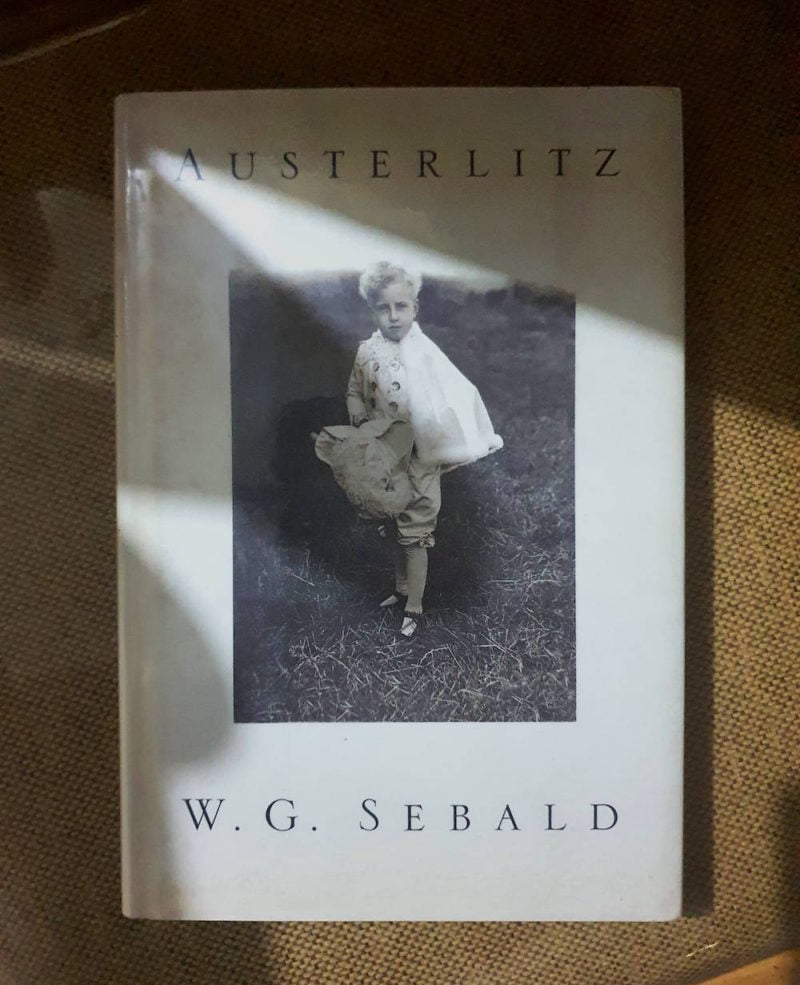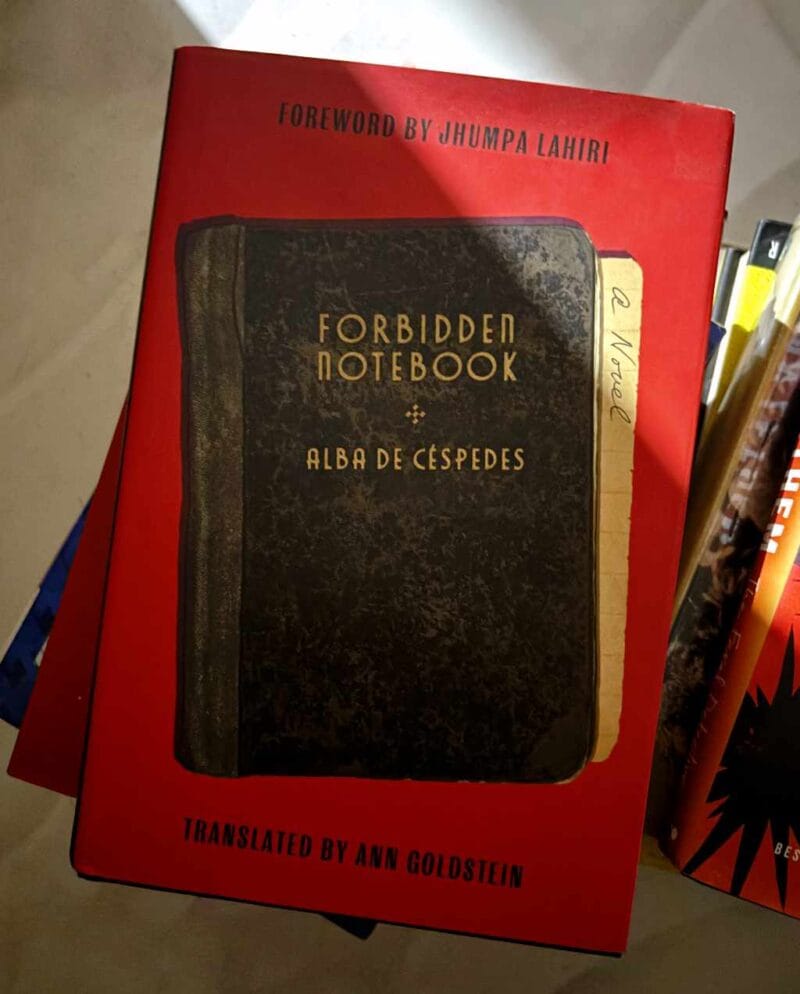[su_label type=”important”]Book in Focus[/su_label]
[su_heading style=”default” size=”12″ margin=”30″]Originally published in German as Der Zauberberg by S. Fischer Verlag (1924). First English translation by Helen Tracy Lowe-Porter, Alfred A. Knopf (1927). This edition published by Alfred A. Knopf (1965), translated from the German by John E. Woods. Hardcover, 716 pages[/su_heading]
Thomas Mann’s novel The Magic Mountain (Der Zauberberg, 1924) is generally considered to be among the most important works of German literature from the twentieth century. It follows the story of a young German engineer who travels to the Alps of Davos, Switzerland, to visit a relative who is being treated for tuberculosis at a sanatorium there. He intends to stay for three weeks but ends up remaining there for seven years.
The story begins in the decade preceding World War I. It introduces the protagonist, the sole child of a Hamburg mercantile family, Hans Castorp, who was raised by his grandfather and, later, by his maternal uncle, James Tienappel, following the untimely death of his parents.
It’s a classic example of the bildungsroman genre, which follows a protagonist through his or her formative years. The Magic Mountain is Mann’s first effort to write a bildungsroman in the vein of Goethe’s classic, Wilhelm Meister.
To illustrate Europe’s pre-World War I insanity, Mann utilizes a Swiss Alps sanatorium as a metaphor for Europe in the years leading up to 1914, when the continent began showing signs of its own final madness. Disease is a major theme in The Magic Mountain, and not just in the context of an individual’s life but of an era. It shows the dichotomy between spirit and body in the context where disease appears as a necessity for spiritual growth.
The Magic Mountain was meant to be a humorous companion piece to his earlier novella Death in Venice (1912), and it deals with similar themes, including an obsession with the afterlife and the supremacy of disorder over a life of discipline.
Memorable Quotes
“Don’t talk to me about literature,” says he. “What has it to offer? Anything but beautiful characters? What have I to do with beautiful characters? I am a practical man, and in life I come into contact with precious few.” That is the idea he has of literature—beautiful characters! Mother of God! His wife sits there opposite him, losing flesh all the time, and sinking further and further into idiocy. It is a filthy shame.
Page 96, The Magic Mountain by Thomas Mann
I represent the world, the interest of this life, against a sentimental withdrawal and negation, classicism against romanticism. I think my position is unequivocal. But there is one power, one principle, which commands my deepest assent, my highest and fullest allegiance and love; and this power, this principle, is the intellect.
Page 249, The Magic Mountain by Thomas Mann
What is time? A mystery, a figment—and all-powerful. It conditions the exterior world, it is motion married to and mingled with the existence of bodies in space, and with the motion of these. Would there then be no time if there were no motion? No motion if no time? We fondly ask. Is time a function of space? Or space of time? Or are they identical? Echo answers. Time is functional, it can be referred to as action; we say a thing is “brought about” by time. What sort of thing? Change! Now is not then, here not there, for between them lies motion. But the motion by which one measures time is circular, is in a closed circle; and might almost equally well be described as rest, as cessation of movement—for the there repeats itself constantly in the here, the past in the present.
Page 344, The Magic Mountain by Thomas Mann
Further Reading
The Magic Mountain — Thomas Mann’s finest novel by Jeffrey Meyers, The Article
‘The Magic Mountain’ by Thomas Mann by Michael Kirwan SJ, Thinking Faith
It’s Time to Revisit ‘The Magic Mountain’ by Jack M. Schroeder, The Crimson
To the Magic Mountain! by Sally McGrane, The New Yorker





